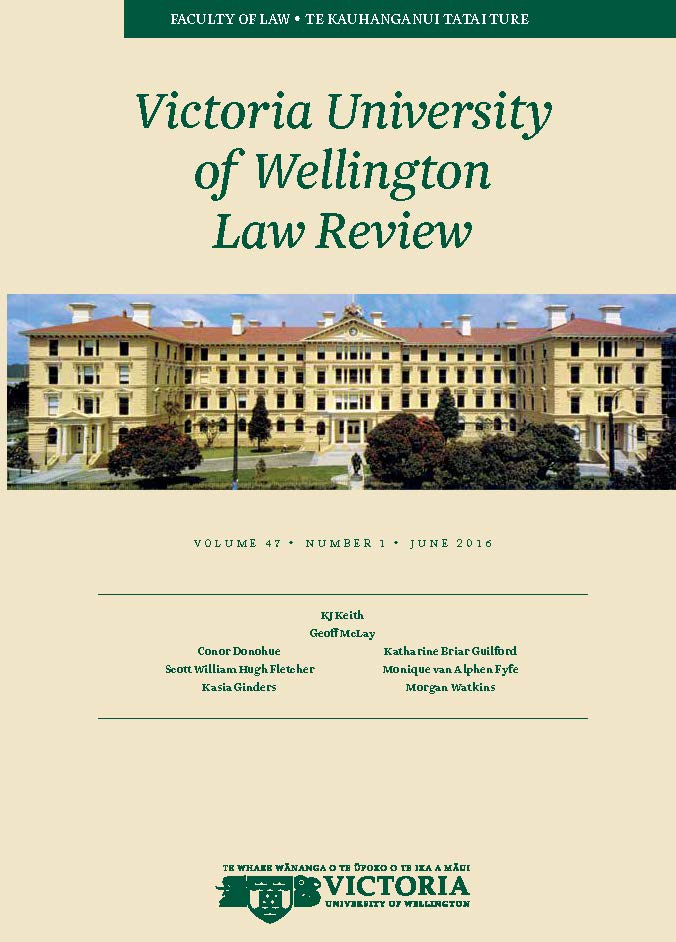The Northern Ireland Question: All-Ireland Self-Determination Post-Belfast Agreement
DOI:
https://doi.org/10.26686/vuwlr.v47i1.4878Abstract
By the Belfast Agreement of 1998, the major parties involved in the Northern Ireland conflict agreed that the territorial status of Northern Ireland would be determined by the Northern Irish people and the people of the island of Ireland collectively. Although this Agreement is significant in shaping the right to self-determination in the all-Irish context, it contains within it many ambiguities. Many questions as to the nature, extent and effects of the right to self-determination in the all-Irish context still remain. These questions and issues which arise within the Agreement are resolvable with recourse to the customary international law of self-determination, particularly the law and practice relating to referenda. The Belfast Agreement is not simply of relevance in the Irish context. Rather, it offers an understanding of the limitations which may be imposed on the right to self-determination, and serves as a model for the resolution of self-determination disputes.
Downloads
Published
How to Cite
Issue
Section
License
Authors retain copyright in their work published in the Victoria University of Wellington Law Review.


